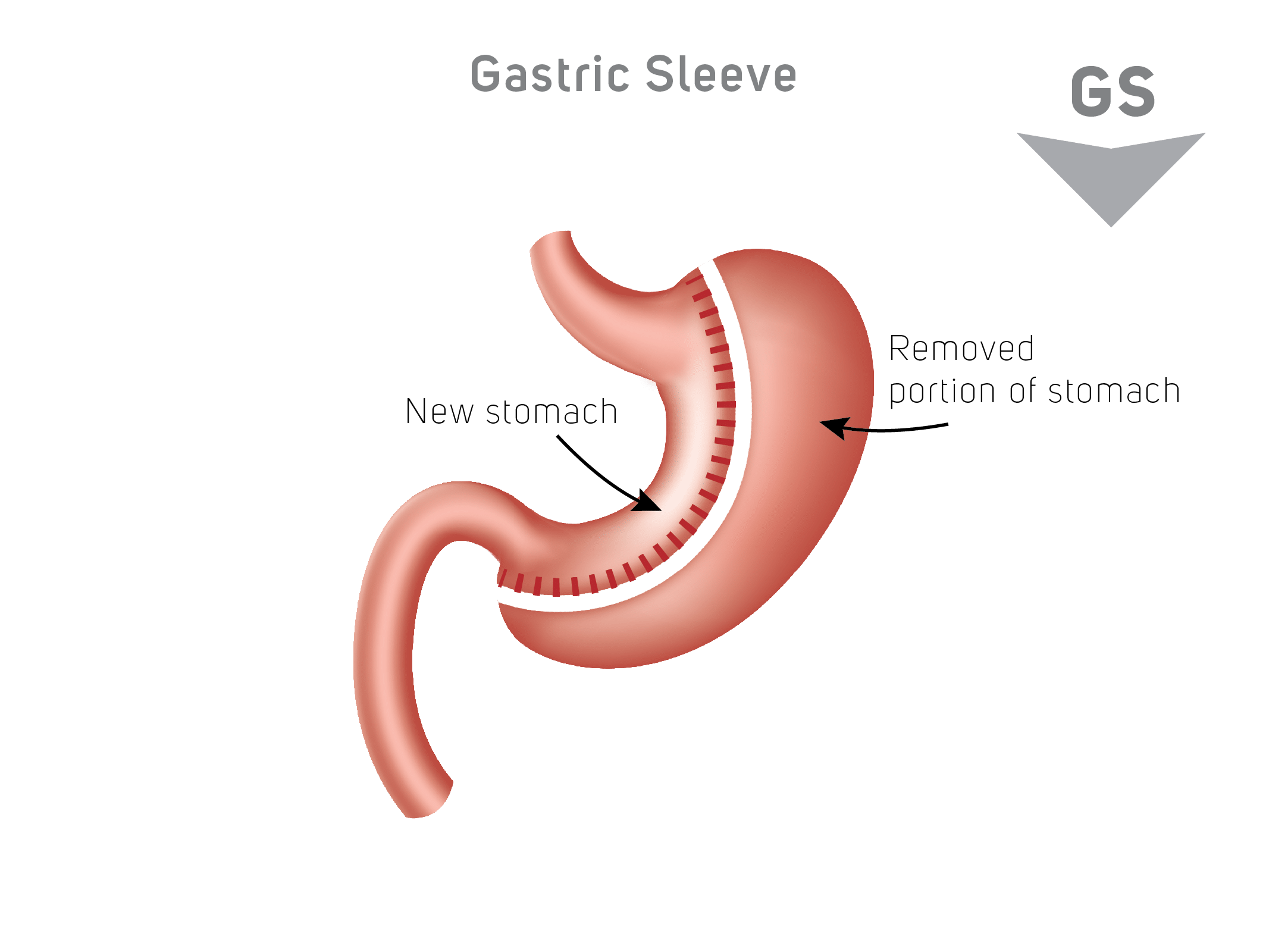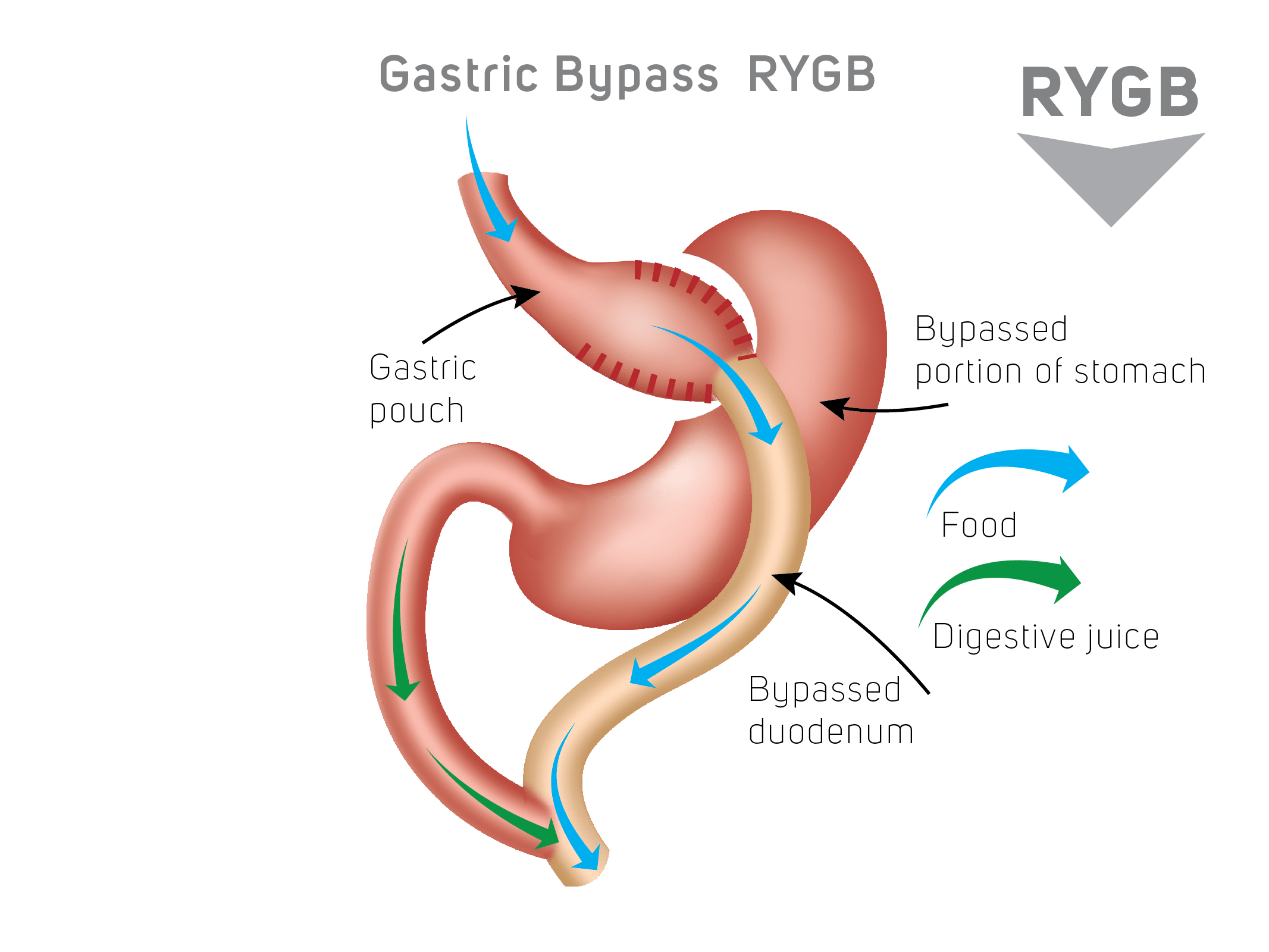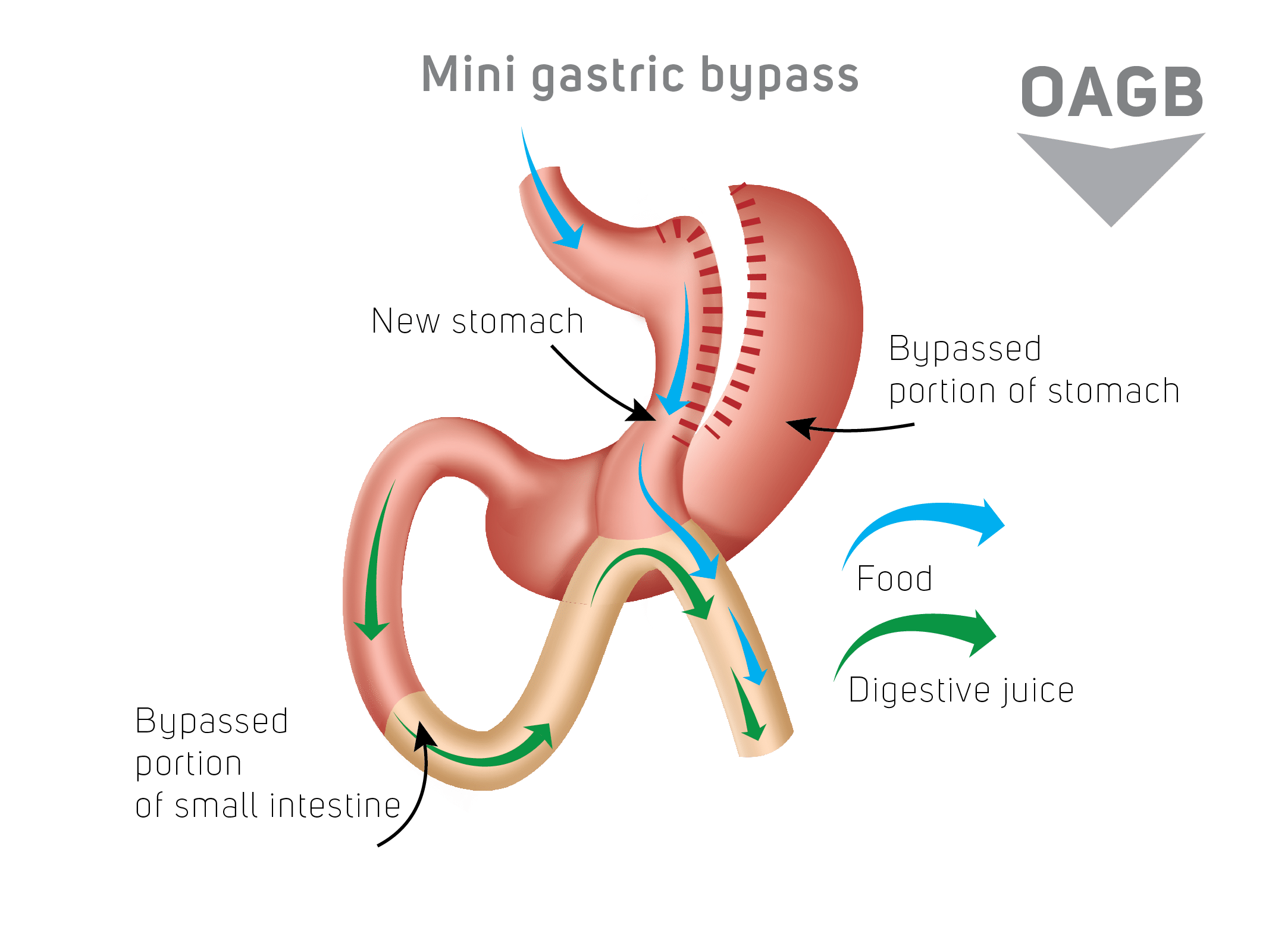Contact the coordinator
+48 75 645 2011
WhatsApp
+48 535 098 999

Contact the coordinator
+48 75 645 2011
WhatsApp
+48 535 098 999
Leave us a message
weightloss@kcmclinic.com
Obesity is a complex health issue affecting millions of people worldwide, and finding effective solutions for weight loss is crucial for both physical well-being and overall quality of life.
While primary weight loss surgeries such as gastric bypass, gastric sleeve, and gastric banding have helped many people achieve significant weight reduction, there are instances where further intervention becomes necessary.
At KCM Clinic, our skilled medical professionals are dedicated to helping you achieve successful weight loss outcomes through personalised and effective revision surgery.
Weight loss revision surgery, also known as revisional bariatric surgery, is a surgical procedure performed to modify or correct a previous weight loss surgery that has not produced the desired results or has resulted in complications.
This type of surgery is typically recommended for people who have undergone a primary weight loss procedure such as gastric bypass, gastric sleeve, or gastric banding but have not achieved their weight loss goals or have experienced complications like ulcers, pouch enlargement or the loosening of a lap band.
Determining your eligibility for weight loss revision surgery requires a comprehensive evaluation by an experienced medical team. Factors such as your current weight, overall health, previous bariatric surgery history and the specific reasons for seeking revision surgery will be considered.
We at KCM Clinic conduct a thorough assessment to understand your unique situation and recommend the most appropriate treatment plan for you.


£ 15.000 starting price
Revisional Bariatric Surgery in the UK

£ 6.490 (All Inclusive)
Revisional Bariatric Surgery In Europe with KCM Clinic
Gastric band revision surgery is a common type of weight loss revision procedure that addresses complications or inadequate weight loss following gastric banding.
This surgery involves removing, replacing, or adjusting the gastric band to improve its functionality and optimise weight loss. It can be conducted in either a single-stage or two-stage approach.
In the single-stage approach, the gastric band is removed and the revision procedure is performed simultaneously. On the other hand, the two-stage approach involves the removal of the gastric band first, followed by a waiting period of a few months before returning for the revision procedure.
At KCM Clinic, our skilled surgeons use advanced techniques to ensure the safety and effectiveness of the procedure, helping you achieve the desired weight loss outcomes.
At KCM Clinic, our priority is to provide patients with the highest-class medical care based on their individual needs and expectations. For over 10 years of working with overweight patients, we have developed, as a multidisciplinary team, an optimal package, containing a number of tests and consultations necessary to perform the procedure.
The Total Cost Estimate of the package includes:
My research for where to have bariatric surgery led me to KCM clinic in Poland and I am forever grateful. Everyone was professional and made me feel great. Karolina was so excellent coordinating everything from start, Dr. Grzegorz Kowalski put my mind at ease and did an awesome job.
My procedure was surprisingly extra smooth... Read more
My experience of KCM has been great right from the beginning talking to Kim (My patient co-ordinator) through to surgery day and beyond.
I flew in on a Thursday and had extensive pre op tests Thursday and Friday, then had gastric sleeve surgery on the Saturday and flew home Monday. The whole process ran smoothly and...Read more
Laparoscopic conversion is a bariatric procedure performed under general anesthesia. The course of the procedure depends on what surgery the patient underwent earlier and what new treatment method he will take.
Revision operations at KCM Clinic:
KCM Clinic is one of the few specialised hospitals in Central and Eastern Europe that uses modern three-dimensional laparoscopy technology during bariatric surgery. The use of the latest 3D and 4K imaging techniques enables the highest quality image visualization and safety of the procedure. As a result, patients are operated on with much greater accuracy and recover faster.
Patients preparing for bariatric surgery in recent weeks should be on a liquid diet that will allow the stomach and liver to be relieved. This results in more effective weight loss after surgery and a lower likelihood of complications during surgery. It is important to take multivitamin preparations and other supplements, depending on the results of the tests and the doctor’s recommendations after the qualifying visit. The patient should appear at the hospital in the morning with a complete set of examinations, pajamas and variable footwear.
Comprehensive tests and consultations are required to qualify and prepare for bariatric surgery for patient safety. All consultations and tests can be done at KCM Clinic.
Required tests:
Before surgery, it is very important to follow a specially prepared, pre-operative diet for a week before surgery. This diet is designed to help reduce the volume of the liver and stomach to facilitate surgery and convalescence. The diet should only be used before surgery and should not be continued later.
Why should you follow a diet?
The diet contains low carbohydrates and fats. Therefore, it will reduce glycogen stores (glycogen is a type of sugar stored in the liver and muscles for energy). Please do not be tempted to eat a special or large meal before surgery, because this will completely eliminate the effect of the diet.
Food guidelines before surgery:
Laparoscopic conversion is a safe operation, but remember to follow precautions. First and foremost, follow your doctor’s instructions. Before surgery, it is crucial to follow a properly prepared diet one week before surgery. The effect of using the diet is to reduce the volume of the liver and stomach, which facilitates not only surgery, but also recovery. The diet should be followed before surgery. Do not continue your prescribed diet after surgery.
Laparoscopy allows the patient to return to a normal lifestyle much faster. Usually, a week after surgery, the patient returns to work except for hard physical work, without pain.
The most important change in life after surgery is diet and the amount of food that the patient takes. It will also help prevent postoperative complications.
A very strict diet after surgery may seem exaggerated. But remember, not following this diet can cause complications such as diarrhea, dehydration, constipation, intestinal obstruction or very serious gastric leakage.
Here are some basic rules:
Laparoscopic surgery makes it possible for patients to recover faster. The patient will be able to drink and get up from the bed a few hours after the procedure, as well as move independently. For safety, a hospital stay of several days is necessary.
Laparoscopic conversion is a bariatric procedure performed under general anesthesia. The course of the procedure depends on what surgery the patient underwent earlier and what new treatment method he will take.
Revision operations at KCM Clinic:
KCM Clinic is one of the few specialised hospitals in Central and Eastern Europe that uses modern three-dimensional laparoscopy technology during bariatric surgery. The use of the latest 3D and 4K imaging techniques enables the highest quality image visualization and safety of the procedure. As a result, patients are operated on with much greater accuracy and recover faster.
Patients preparing for bariatric surgery in recent weeks should be on a liquid diet that will allow the stomach and liver to be relieved. This results in more effective weight loss after surgery and a lower likelihood of complications during surgery. It is important to take multivitamin preparations and other supplements, depending on the results of the tests and the doctor’s recommendations after the qualifying visit. The patient should appear at the hospital in the morning with a complete set of examinations, pajamas and variable footwear.
Comprehensive tests and consultations are required to qualify and prepare for bariatric surgery for patient safety. All consultations and tests can be done at KCM Clinic.
Required tests:
Before surgery, it is very important to follow a specially prepared, pre-operative diet for a week before surgery. This diet is designed to help reduce the volume of the liver and stomach to facilitate surgery and convalescence. The diet should only be used before surgery and should not be continued later.
Why should you follow a diet?
The diet contains low carbohydrates and fats. Therefore, it will reduce glycogen stores (glycogen is a type of sugar stored in the liver and muscles for energy). Please do not be tempted to eat a special or large meal before surgery, because this will completely eliminate the effect of the diet.
Food guidelines before surgery:
Laparoscopic conversion is a safe operation, but remember to follow precautions. First and foremost, follow your doctor’s instructions. Before surgery, it is crucial to follow a properly prepared diet one week before surgery. The effect of using the diet is to reduce the volume of the liver and stomach, which facilitates not only surgery, but also recovery. The diet should be followed before surgery. Do not continue your prescribed diet after surgery.
Laparoscopy allows the patient to return to a normal lifestyle much faster. Usually, a week after surgery, the patient returns to work except for hard physical work, without pain.
The most important change in life after surgery is diet and the amount of food that the patient takes. It will also help prevent postoperative complications.
A very strict diet after surgery may seem exaggerated. But remember, not following this diet can cause complications such as diarrhea, dehydration, constipation, intestinal obstruction or very serious gastric leakage.
Here are some basic rules:
Laparoscopic surgery makes it possible for patients to recover faster. The patient will be able to drink and get up from the bed a few hours after the procedure, as well as move independently. For safety, a hospital stay of several days is necessary.



Contact the coordinator
+48 75 645 2011
WhatsApp
+48 535 098 999
Leave us a message
weightloss@kcmclinic.com
NON-INVASIVE TREATMENT OF OBESITY
Send Request
Register
Visits, hospital procedures
Bariatric Surgery Center
Plastic Surgery Center
Spine Surgery Center
Dental Clinic
OMEGA Imaging Diagnostic Center
Work hours
KCM Clinic Wrocław
Chat KCM Clinic
Locations
KCM Clinic Jelenia Góra
KCM Clinic Wrocław
Parking